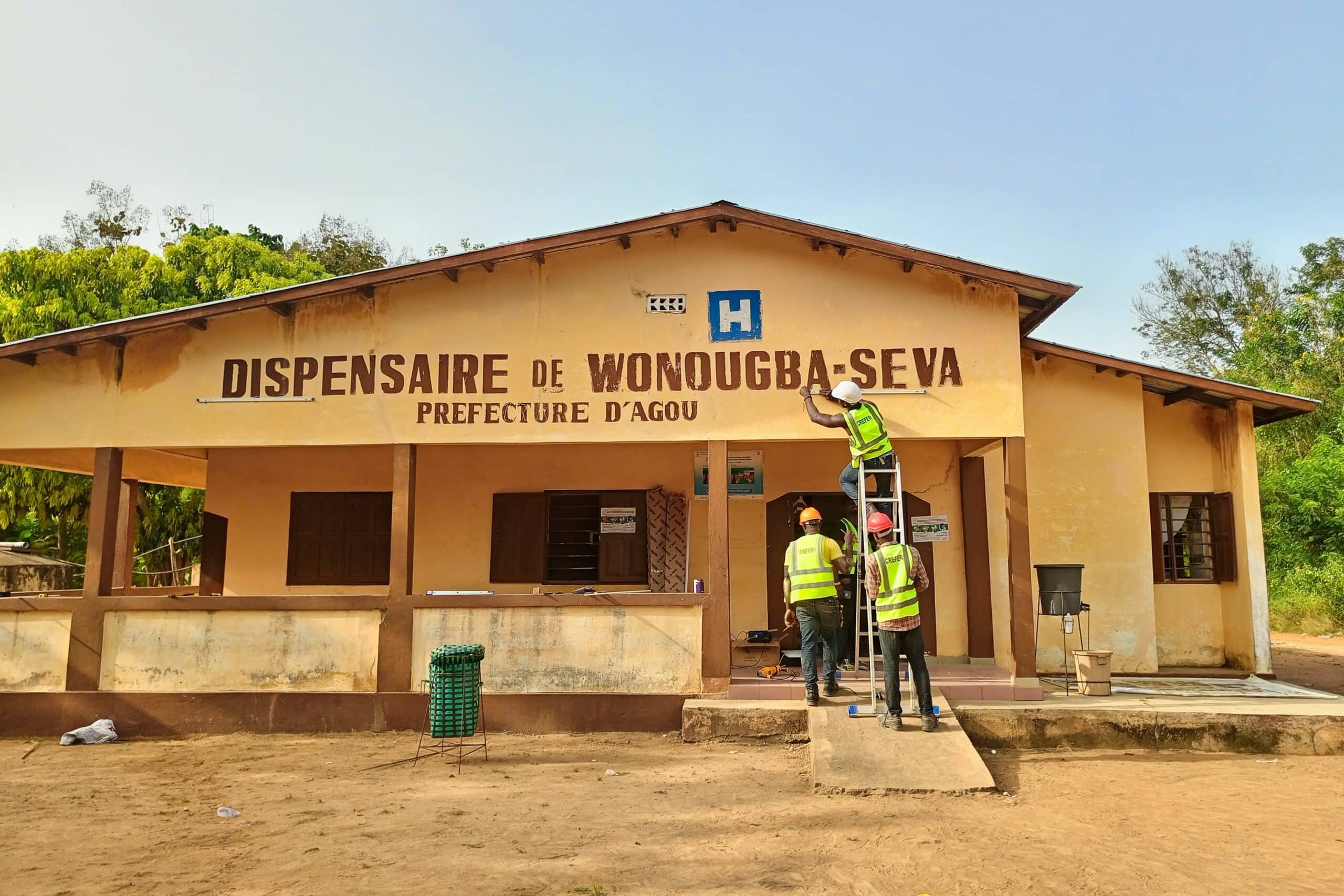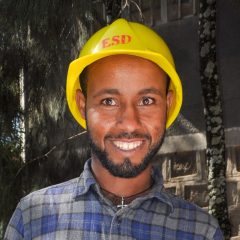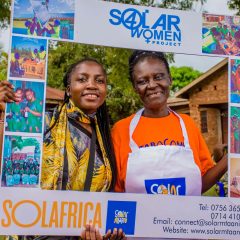One becomes three: in 2023, we expanded the Santé Solaire project in Burkina Faso into a multi-country programme and are now also active in Niger and Togo. Our project employee, Malou Cornelsen, travelled to Togo at the end of 2023 and met the project coordinators from the three countries.
The road to the village is bumpy and our progress is slow. On the way, we see small village communities with their livestock everywhere. The land is very fertile and the people live from growing bananas, papaya, cotton, maize and cocoa. It is 9 o’clock in the morning, but it is already hot and humid. We can hear the chanting from afar, which is getting louder and louder.

We are on our way to the rural health centre in Agou (Togo). Today sees the inauguration of the newly installed solar system – one of the first to be built in Togo under the Santé Solaire programme. Santé Solaire is a successful concept for using solar energy to help improve healthcare in remote areas of West Africa.
The programme was developed specifically for the context in Burkina Faso, but is also suitable in many aspects for Niger and Togo, as the health systems of the sub-Saharan countries were harmonised in 1987. Each of the project countries has different prerequisites and strengths, which means that they can support each other.
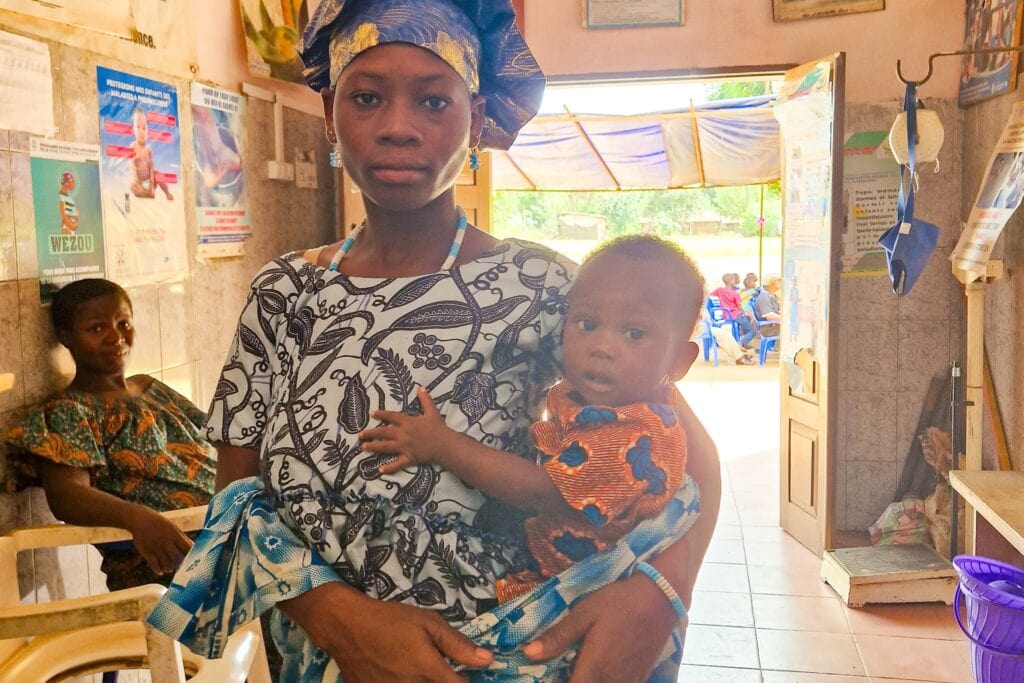
To ensure that Santé Solaire is also successfully implemented in the new project countries, we have entered into new partnerships in close cooperation with local organisations, solar companies, health experts and authorities.
Cète Tiendrebéogo, a long-standing partner and managing director of SETHI in Burkina Faso, has taken over the regional coordination of the programme and is supporting the new Santé Solaire project coordinators in Niger and Togo.
Adideme Koutangni, Seidi Abdourahmane and Cète Tiendrebéogo (from left):
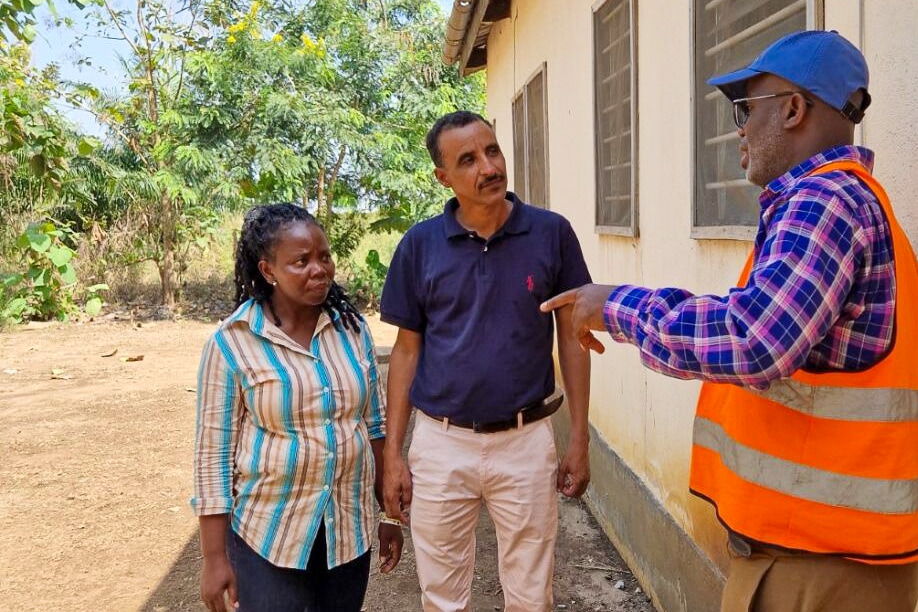
The collaboration between the three project coordinators got off to a very positive start, which I was able to experience for myself. At the end of 2023, four of us met in Togo to share experiences and learn from each other. At the same time, two solar technicians from Niger received further training at a renowned training centre in Togo in order to better anchor the knowledge of solar technology in Niger.
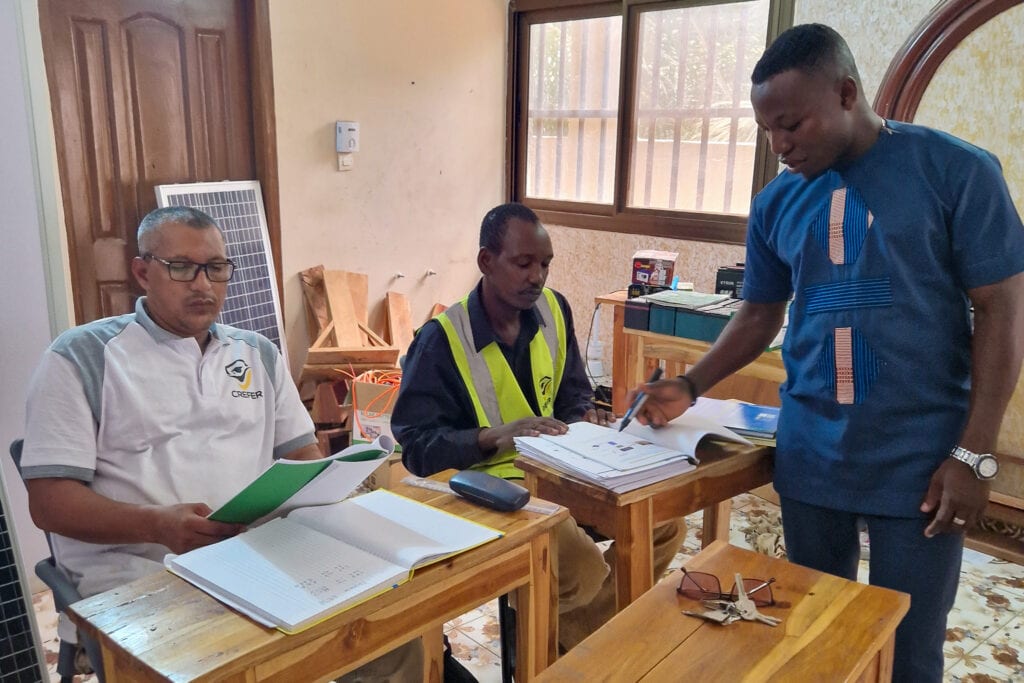
We all attend the inauguration ceremony in Agou, the fruits of Adideme Koutangni’s labour. The chanting gets louder and louder. As we turn a corner, we see people dancing in colourful costumes. All the villagers who normally work in the fields at this time of day are there. Important representatives of the village communities are also there: mayors, health officials – many of them have travelled from far away. The atmosphere is exuberant and festive.
The mayor steps up to the microphone and gives a speech. At the end, he says: “I’m not a feminist. I’m also not a fan of gender roles being abolished – but Adideme has achieved something that no man before her has. Thank you for your hard work!”
Many other speakers express their gratitude. The light in the health centre gives them an incredible amount of hope. It is the only source of light in the neighbourhood. I can see from Adideme, Cète and Seidi that they are moved. I myself am moved to tears.
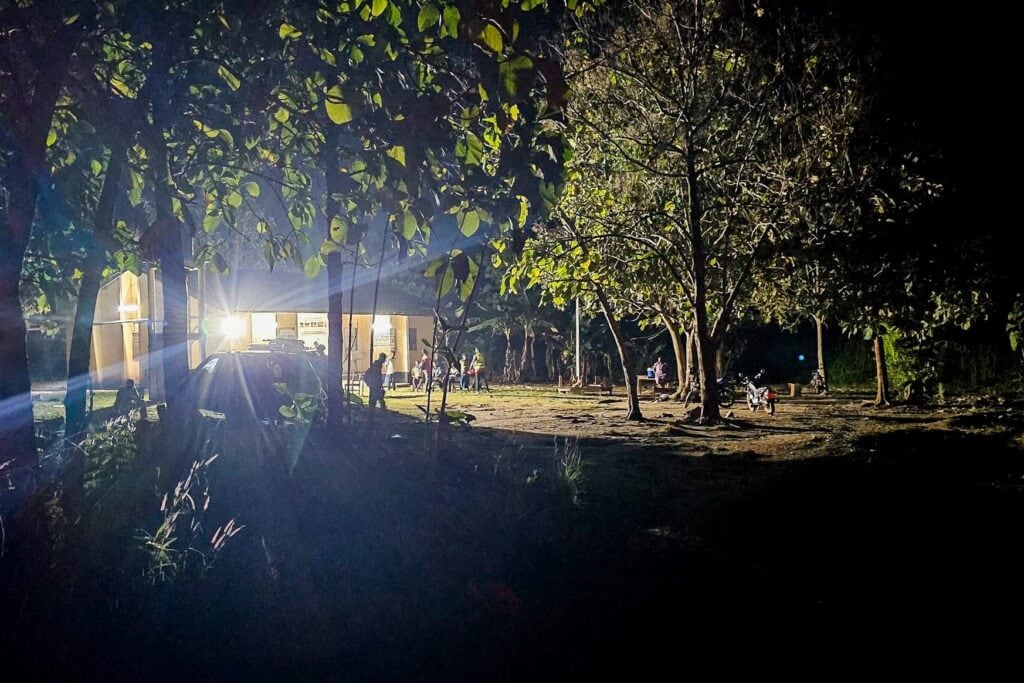
The head doctor at the centre, Akarim Agomaessemon, tells me: “Previously, we had to perform births at night with a torch in our mouths. I don’t know how to express my joy about the solar system. In one week since the installation, we have already had 55 consultations. We have seen a very big increase. Confidence in the health centre is growing. I am very happy.”
In 2023, we were able to equip a total of ten health centres with solar energy as part of Santé Solaire, including four in Togo and six in Burkina Faso. The construction of the first solar plants in Niger is planned for 2024.
